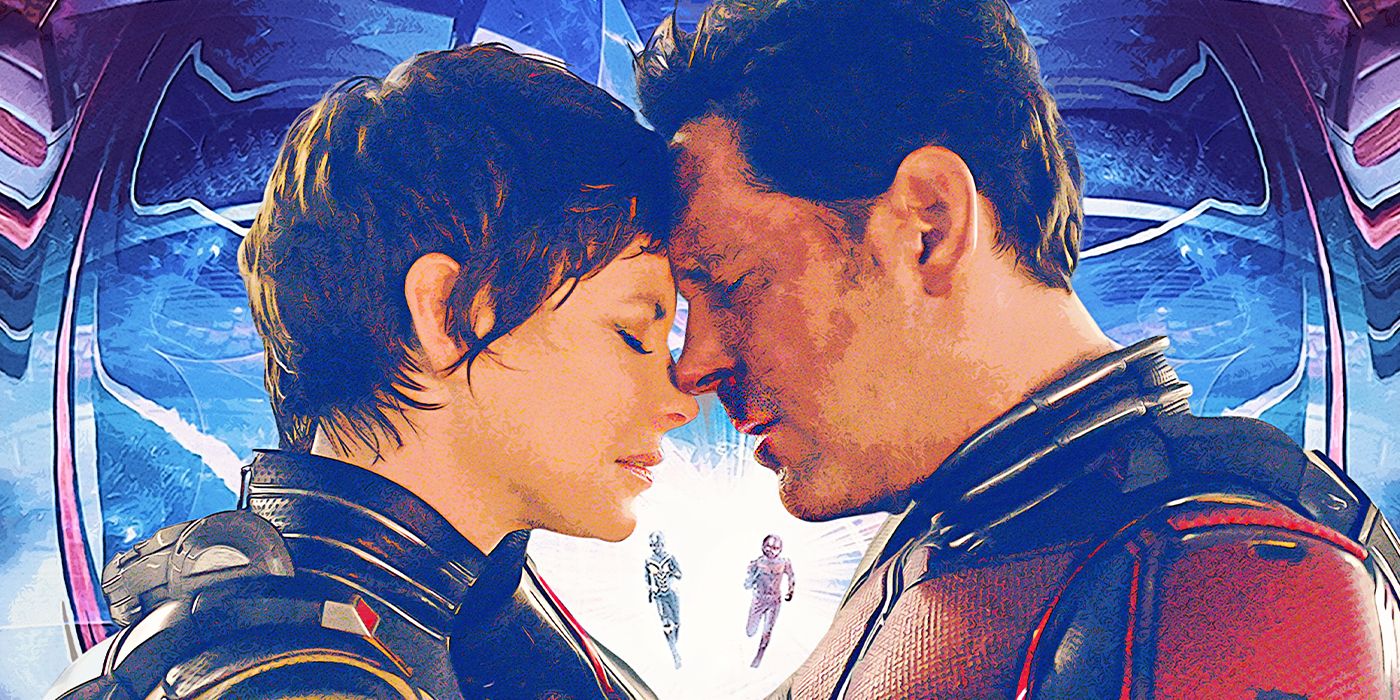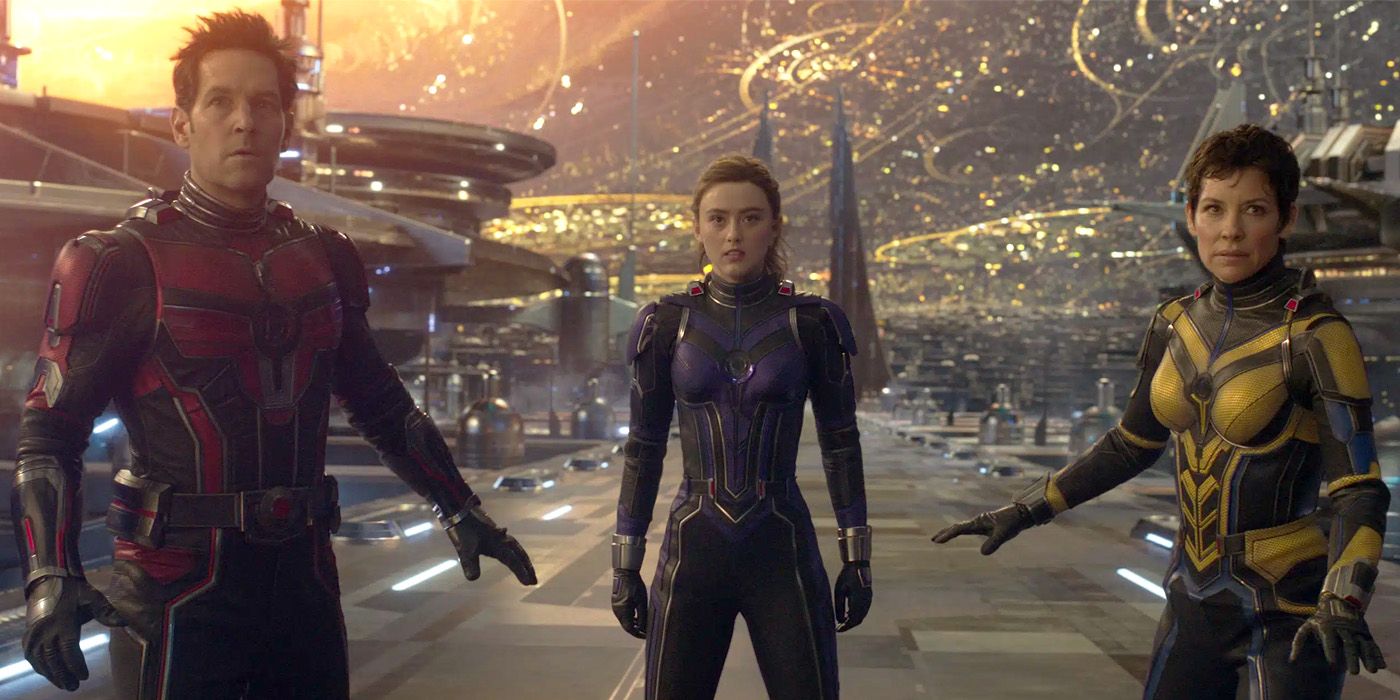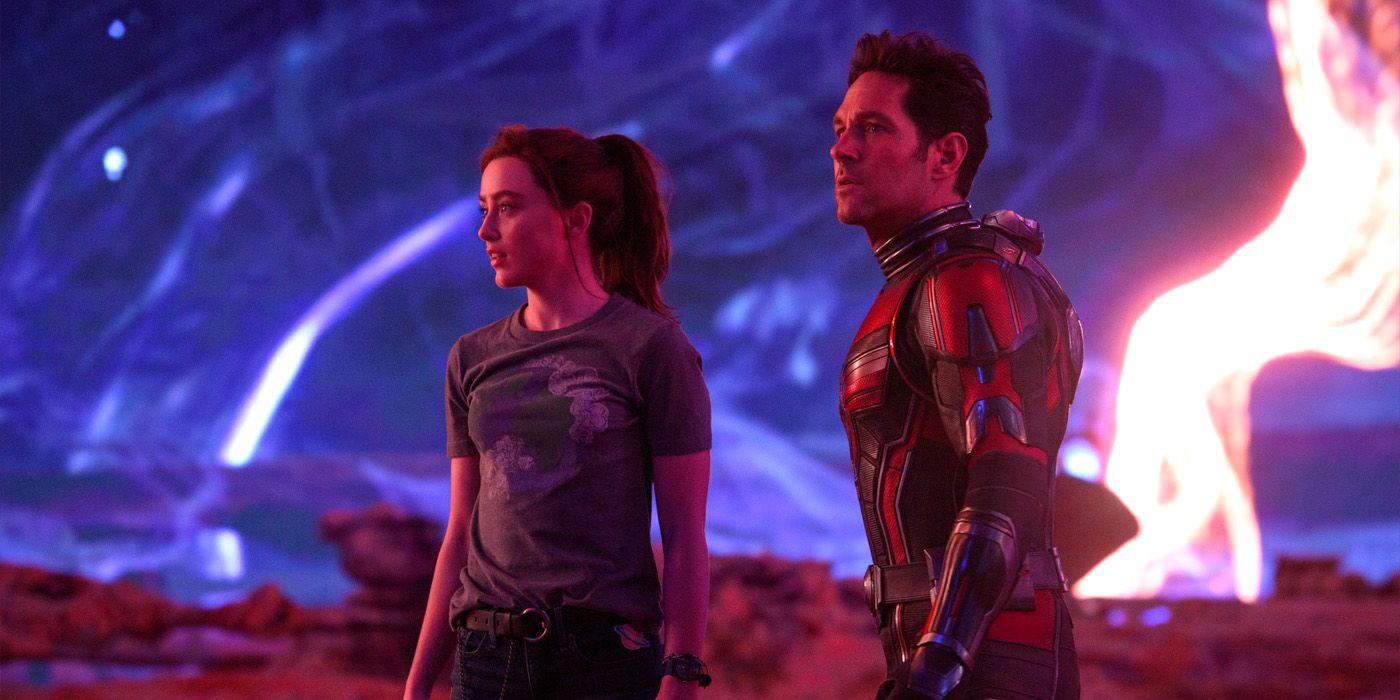Although reviews seem to be on the negative side for the Marvel Cinematic Universe's latest, Ant-Man and the Wasp: Quantumania doesn’t really have any new or different issues that haven’t already been a problem for the franchise. Many of the film's flaws, such as the awkward inserts of humor, confusing post-credit scenes, obligatory setups for future movies, underwhelming visual effects within CGI-heavy sequences, and large chunks of exposition, have been present in the MCU since the beginning. However, the lack of real romantic tension between Scott Lang (Paul Rudd) and Hope Van Dyne (Evangeline Lily) represents a growing issue that the MCU seems afraid to mature the established relationships, making the stakes of each film feel less impactful.
Scott and Hope were first introduced as rivals in the original (and underrated) Ant-Man film; Scott is a petty thief with a checkered past, and his incompetence frustrates Hope. She feels that her father, Hank Pym (Michael Douglas), made a mistake by giving an opportunity that should have been hers, to a simplistic conman. But alas, her father's reasoning was one rooted in trauma, as he didn’t want to lose his daughter like he did his wife, Janet van Dyne (Michelle Pfieffer). Nonetheless, the tension between Scott and Hope leads to an eventual romance where he proves his merit in the fashion of a typical romantic comedy and given director Peyton Reed’s experience helming excellent rom-coms like Bring It On and Down With Love, it’s endearing and good-natured.
Unfortunately, there’s very little to go in Ant-Man and the Wasp. Nothing has really changed in the status quo of their relationship, and the film’s only solution is to have Scott revert to a childish sense of panic in order to once again elicit Hope’s annoyance. It felt like a retread because the MCU didn’t want to move forward, and to its credit, Ant-Man and the Wasp: Quantumania at least makes an attempt to take their relationship in a more mature direction. Unfortunately, the fact that it’s the least important part of the narrative speaks to a larger issue within the MCU moving forward into Phase Five; if the audience isn’t invested in seeing these characters reach a point of happiness, then why are they worth investing in?
A Dull Reality
Within the opening few moments of the film, Scott narrates the joys of his life in a jovial manner as he recounts why being the Earth’s “tiniest Avenger” has turned his life around. Most of the things he notes are comedic beats, such as getting free food from the Baskin' Robbins he used to work at, taking photos with children (and dogs), and reading from his self-congratulatory autobiography at a public event. Notably, none of these “happy moments” within Scott’s life are shared with his family. He only makes a brief, vague reference to the fact that Hope is working on charitable work at a foundation that is never mentioned again. We don’t get a sense that the family is staying together and enjoying each other’s company.
The possibility that an issue might arise emerges when Cassie (Kathryn Newton) is arrested, and Scott discovers that it’s not the first time his daughter has seen the other side of a jail cell. Instead of developing how Scott and Hope process the news as a couple, the film plays it off as another joke when he realizes Hope has been colluding with her father to hide Cassie’s encounters with the law from her husband. Instead of using this to show how out of touch they are with each other or developing relationship tension, it feels like the film is once again playing into the “oblivious Scott” archetype that the franchise has clearly matured beyond.
In a film that is certainly more serious in tone than its two predecessors, there was so much room to explore a rarity in the MCU: a married couple. Scott’s one defining characteristic throughout all of his appearance has been protecting his daughter, so what happens when Hope is willing to put her in danger? Once they venture into the Quantum Realm, Scott seems to only focus on saving Cassie; what if he has to choose between his partner and daughter? The consequences of the blip aren’t really addressed either; what sort of toll does a five-year absence have on a relationship? As perusal with the MCU, any mention of intimacy is scrubbed out entirely. If the Ant-Man films aren’t even brave enough to make a few jokes about shrinking for sexual encounters, then there’s definitely a problem.
A Recurring Issue
In defense of Ant-Man and the Wasp: Quantumania, this isn’t the only franchise that has struggled to retain a relationship between multiple installments. Thor (Chris Hemsworth) and Jane (Natalie Portman) are relatively cute together in the first installment, but the lack of chemistry between the two stars is evident by the time of Thor: The Dark World. The attempt to throw stakes into Thor: Love and Thunder by giving Jane a terminal diagnosis is so mishandled, that it plays out like a daytime soap opera. Similarly, Steven Strange’s (Benedict Cumberbatch) endless pursuit of Christine Palmer (Rachel McAdams) is more toxic than either of the films are willing to account for.
However, drastically changing the status quo seems like the only idea the MCU has. Even if Peter Parker and MJ’s romance did seem to somewhat evolve after Peter gets over his initial fears in Spider-Man: Homecoming and ultimately reveals to her his alter ego in Spider-Man: Far From Home, MJ’s memory is wiped by the end of Spider-Man: No Way Home. Similarly, Peter Quill (Chris Pratt) and Gamora (Zoe Saldana) show a little bit of maturation between the first two installments in the Guardians of the Galaxy franchise, but the events of Avengers: Endgame reveal that the “new Gamora” now has no memories of her life with Peter. Now that these two relationships are reset, the MCU can essentially go back to basics and build them from scratch again.
Looking at it more cynically, Scott’s focus on Cassie could indicate a vested interest in setting up a younger character for what will presumably lead to some sort of “Young Avengers” storyline in the future. However, it also reflects the lack of identity within the new era of Marvel with the “Multiverse Saga”; any kid that saw Iron Man or The Avengers is grown up now and might be interested in seeing a mature romance onscreen. However, the MCU might be trying to just introduce new heroes in order to cycle in new fans, which only leaves those that have already been hooked, behind.
Ant-Man and the Wasp: Quantumania is currently enlarging the MCU in theaters.



